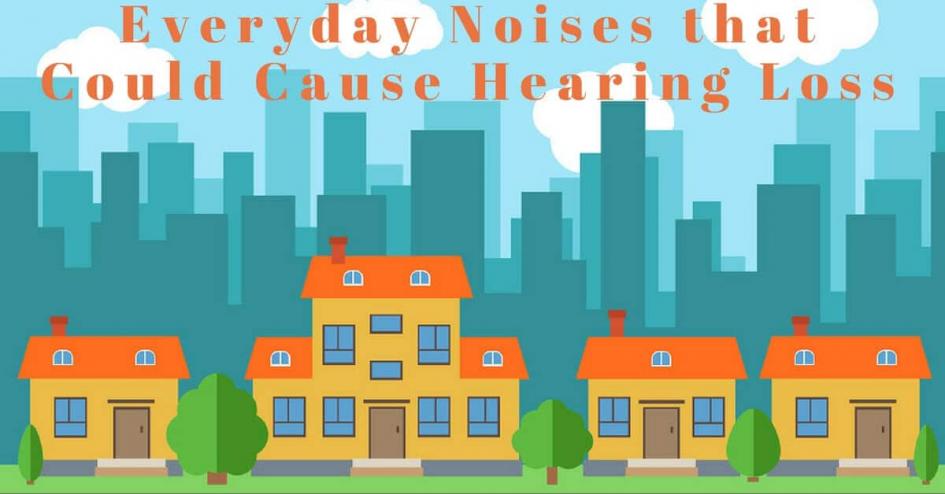
Everyday Noises That Could Cause Hearing Loss
Hearing loss affects an enormous portion of the population. Genetics and aging account for much of this. Almost half of people at 40 years of age report some degree of hearing loss. That jaw dropping number jumps to more than 70% of people at age 70. And while there isn’t a way to prevent these irreversible types of hearing loss, there are ways to protect the delicate and intricate system that enables us to hear the world around us.
Turn down the telly
It sounds like a bit of a laugh, but decreasing the volumes of everyday life can go a long way in preventing long term hearing damage. Over time, gradual amounts of volume increases can really add up. When you are home for a night filled with your favourite television programme, note the volume you habitually turn to. Could it be lower without having to strain to hear what’s being said? If the answer is yes, try out that new volume setting and mark it in your mind. That’s precisely the volume you should strive for in the future.
Use the same strategy when you’re out for a drive. Better yet, wait until the next time you’re in your auto with a pal. Make sure that the volume you use on your audio system is at a level that allows you to still carry on a normal conversation. This is the level you should take note of and try to maintain.
Crowd favourites that aren’t ear pleasing
Of course, turning up the radio volume when your favorite tune plays isn’t going to result in permanent hearing loss. But, research shows that prolonged exposure to dangerous sound over extended periods of time can do real damage. Part of protecting your hearing in the long term means developing the habit of protecting your ears in the short term.
Professional musicians are a group that historically suffer from just this type of overexposure to too-loud sounds. They’re doing damage by exposing their hearing to potential danger from everyday noises on a regular basis. Most of us aren’t situated next to blaring speakers every night, but when you’re presented with the option to protect your ears, do you? Ranging between 110-140 decibels, rock concerts are everyday events that carry perhaps the most risk for potential hearing damage. When attending a concert, don’t fight your way to the front of the crowd. If you must be in the midst of the music, carry a set of earplugs along to pop in when the sound becomes too intense. That goes for any other performance or display. On Guy Fawkes night, you’ll get just as much of a visual display without any cause for concern if you hang back away from the booming fireworks.
Ear emergency
Another everyday occurrence that might end up doing a number on your hearing are emergency vehicle sirens. These often end up near the ‘Rock Concert’ level of dangerous decibels. If your work or home is near a hospital, you might want to take precaution against these excessive noises. If you live in an area along the path of such vehicles, shut the windows on the facing side and don’t plan outdoor seating in that side of your back garden.
If you work near such noise, make sure that the space you occupy has similar precautions in place. With these sorts of scenarios, it’s really the noticing that makes the difference. Once you’ve pinpointed the potential risk, you can implement simple steps to avoid the bulk of the hazardous volume.
Home improvement
It’s not necessarily a quick release from any home care chore you’ve been avoiding over the past fortnight, but home improvement activities also harbour excessive noise culprits. Nail guns cross that upper threshold of healthy hearing decibel levels. Lawnmowers are also particularly bad actors in the excessive noise department. That doesn’t mean that these tools can never be put to use, instead, it means that they should be utilised with caution.
Mind your hearing health
If you’re in an everyday noise scenario that leaves your ears hurting or buzzing, take stock and reconfigure the role those activities play in your life. Don’t stop mowing the yard, building that fence, or attending your favorite concert. But do take along ear protection and have a care about what your ears are telling you.
Are you experiencing changes in your hearing? Visit us at one of our House of Hearing centres today.
Our Clinics
All House of Hearing clinics are in town centre locations and accessible to public transport and parking. Home visits also available if mobility is an issue.


.png)
.png)
.png)

.png)
